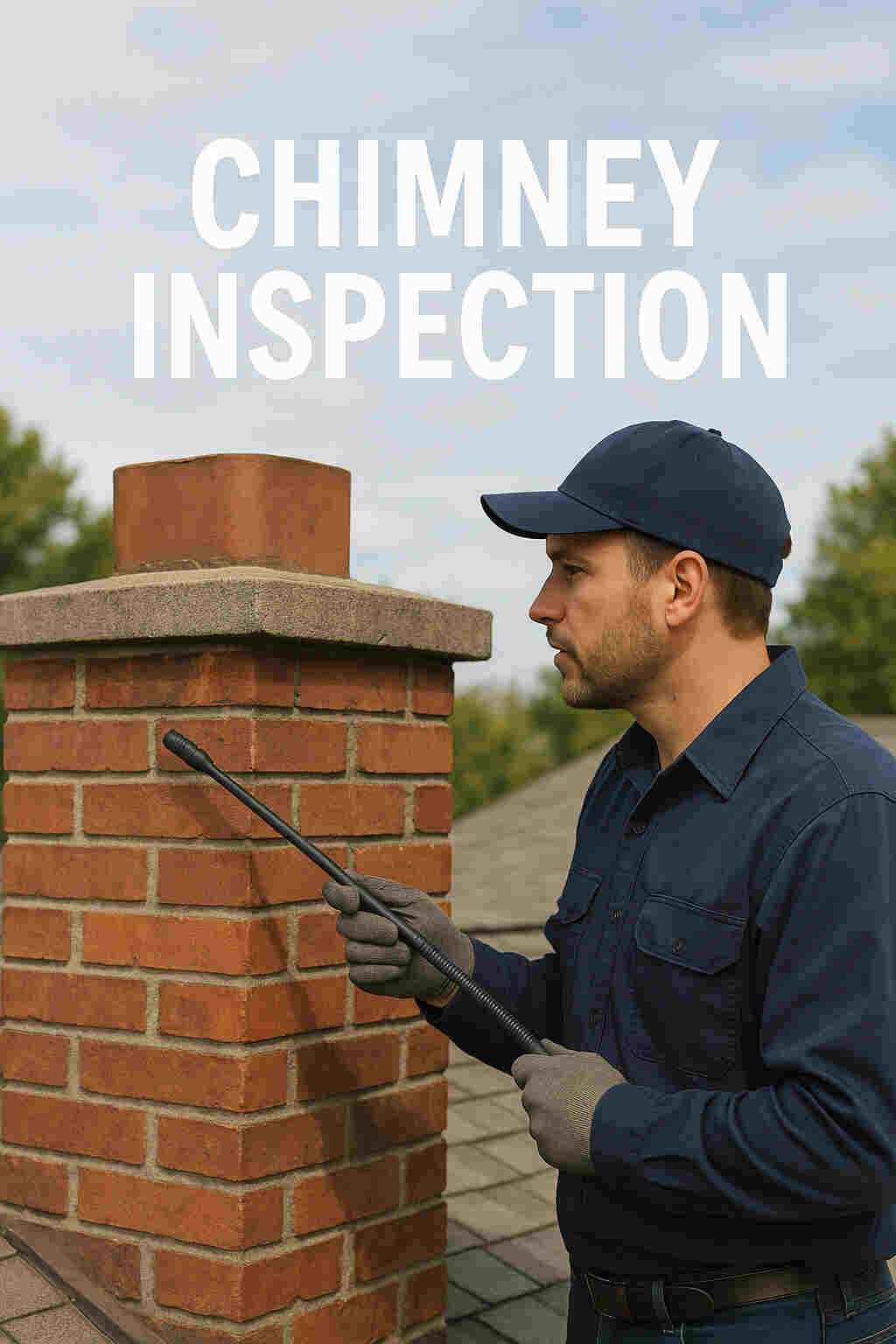Homeowners with fireplaces often wonder whether regular inspections are worth the investment. A chimney plays a critical role in ventilation and fire safety, making professional evaluation a necessity. Understanding what the process involves and why it matters can help you protect your property and avoid costly repairs. This guide covers everything you need to know about a Chimney Inspection.
Why Does a Chimney Inspection Matter?
A chimney is not just an architectural feature—it’s a functional system that channels smoke, gases, and by-products safely out of your home. Without proper inspection, hidden issues such as cracks, blockages, or creosote buildup may go unnoticed. Local safety codes in many city and state areas emphasize the importance of annual inspections to prevent fire hazards. Trusted providers and certified contractors recommend scheduling a chimney evaluation before the colder months to ensure your fireplace is safe, efficient, and compliant with safety standards.
What Common Problems Can a Chimney Inspection Detect?
A professional sweep or inspector can uncover multiple issues that are not visible to the untrained eye. Some of the most common include:
- Creosote buildup: Flammable deposits that increase fire risk.
- Bird nests or debris: Often requiring removal or a guard screen installation to prevent blockages.
- Cracked masonry or liner damage: Weakens structural integrity and reduces safety.
- Moisture infiltration: Leads to rust, deterioration, and costly repairs if ignored.
- Poor ventilation: Increases carbon monoxide exposure risks.
Local companies often offer affordable cleaning services alongside inspections, which ensure your chimney operates efficiently year-round.
What Are the Key Benefits of Scheduling a Chimney Inspection?
Professional inspections offer multiple advantages that extend beyond safety:
- Early detection of problems: Saves money on long-term repairs.
- Improved efficiency: A clean and maintained system ensures optimal fireplace performance.
- Peace of mind: Knowing your chimney meets safety standards allows you to enjoy your home with confidence.
- Insurance compliance: Many business providers and insurance companies require proof of inspection.
- Extended lifespan: Regular services protect against deterioration, reducing future costs.
What Role Does a Chimney Inspection Play in Fireplace Safety?
The ultimate role of a chimney inspection is safeguarding your home and family. Certified and licensed inspectors follow industry guidelines to identify hazards that might otherwise remain hidden. A trusted professional ensures your fireplace, flue, and ventilation systems are clean, secure, and up to code. According to the National Fire Protection Association, “Chimney inspections are one of the most effective preventive measures homeowners can take to reduce fire risks.” With nearby experts available in most neighborhoods, scheduling this service has never been easier.
How Much Does a Chimney Inspection Cost?
The cost of inspection services depends on the level of evaluation required and the company you choose. Affordable providers often offer competitive prices, but the quality of service should always come before seeking the cheapest option. Below is a general breakdown of average inspection prices across the U.S.
| Service Type | Average Price Range | Notes |
| Level 1 Inspection (basic) | $75 – $150 | For routine maintenance |
| Level 2 Inspection (detailed) | $150 – $400 | Recommended when selling/buying a home |
| Level 3 Inspection (extensive) | $400 – $700+ | Includes structural evaluation, partial removal |
| Chimney Cleaning/Sweep Add-On | $100 – $250 | Often paired with inspection |
| Disclaimer: Prices vary by city, area, provider, and neighborhood. Always verify with local contractors for the most accurate costs. |
What FAQs Do Homeowners Ask About Chimney Inspections?
Q1: How often should I schedule a chimney inspection?
At least once a year, preferably before the heating season.
Q2: Can I perform my own inspection?
DIY checks may reveal visible damage, but only certified experts can provide a complete evaluation.
Q3: Do inspections include cleaning?
Many local companies combine both services, though some contractors separate them.
Q4: What if I ignore inspections?
Skipping inspections increases risks of fire, structural damage, and expensive repairs.
Q5: Are there affordable options near me?
Yes. Many trusted providers in your city or nearby areas offer affordable packages and even seasonal discounts.
What Are the Key Features of a Professional Chimney Inspection?
When hiring a company or contractor, look for these essential features:
- Certified and licensed professionals: Ensures quality and compliance.
- Detailed reporting: Clear documentation of findings for reference.
- Use of advanced tools: Cameras and scanning equipment for accurate detection.
- Optional cleaning services: Many providers combine inspections with sweeps for added convenience.
- Bird guard or screen installation: Prevents future blockages and protects the chimney top.
Professional businesses often advertise these features as part of their ultimate service packages, making it easier for homeowners to choose trusted and expert providers.
Conclusion: Why Should Every Homeowner Schedule a Chimney Inspection?
A chimney inspection is not just another household service—it is a necessary step in protecting your family, property, and peace of mind. From detecting hidden dangers to improving fireplace efficiency, inspections are the foundation of safe and effective home heating. Local, certified, and professional providers make it possible to access affordable and trusted services in nearly every city and neighborhood. Whether you are considering routine maintenance, bird removal, or chimney cleaning, hiring expert contractors ensures you receive the best results. By understanding costs, benefits, and features, you can make informed decisions and maintain your chimney in top condition for years to come.
Read More: Clovis Chimney Sweep


